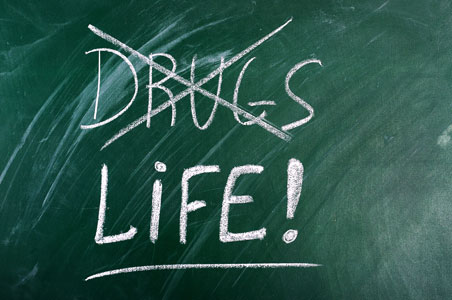 “To be or not to be?” If Hamlet were to present his soliloquy today he might phrase the question a bit differently: To be a drug addict or not to be a drug addict? That begs another question: Is addiction a disease or is it a choice? The answer is a confusing: Yes.
“To be or not to be?” If Hamlet were to present his soliloquy today he might phrase the question a bit differently: To be a drug addict or not to be a drug addict? That begs another question: Is addiction a disease or is it a choice? The answer is a confusing: Yes.
In 2009, research psychologist Gene Heyman published a book that presented a thesis with the premise that drug addiction is not a disease but is rather the consequence of a series of voluntary choices. Heyman is also a lecturer in psychology at the Harvard Medical School, and his book, “Addiction: A Disorder of Choice”, elicited a fury of responses. His theory flies in the face of the prestigious U.S. National Institute on Drug Abuse (NIDA) that works closely with scientists around the world, including in Australia. NIDA has taken the position that drug addiction is a disease of the brain.1
So who is right? Heyman points out that many addicts quit taking drugs in their 30s as a matter of choice, while people with chronic diseases like diabetes cannot choose to stop being diabetic. He has a point, but since then additional research on the impact of drugs on the brain have produced new information that indicates Heyman’s thesis overly simplifies the many facets of addiction. A 2009 study conducted by a group of universities in Australia and Singapore reviewed the neurobiological research on drug addiction. The researchers called addiction a chronic condition as opposed to a chronic disease and discussed how addicts make the choice to use drugs for various reasons. These reasons include avoiding severe withdrawal symptoms and to achieve rewarding effects (scientific terminology for “highs”).2
But the report also points out that medical research had recently discovered there was a neurobiological pathway that underlies all addiction. It was becoming apparent that addiction is not just about making choices. Drug use creates “specific pharmacological and anatomical changes in brain activity” (Carter, p 32). Addiction is recognised as a complex condition that requires “…genetic, molecular, cellular, neurophysiological, cognitive, psychological and social explanations” (Carter, p. 35). Changes in the brain’s chemistry seem to underlie addictive behaviours, but the brain studies on addiction involved animals and not humans.
Breaking the Brain
Thanks to technology, medical professionals can now study human brains. In 2010, researchers at the Neurocentre Magendie in Bordeaux discovered that addiction could be the result of persistent impairment of synaptic functioning in the brain.3 It is like using something over and over again until it breaks, and you cannot fix it. The researchers call it pathological cerebral modifications that reach a point where the person is unable to overcome the modifications brought on by drug use. This was an early study linking repeated drug use to brain changes that cause addiction. How well a person can overcome the brain modifications caused by drugs explains why some people get addicted and some do not.
Since these studies, application of technology has shown many times that brain functioning can be altered by drugs. However, many people never reach the point of no return and can choose to stop using drugs. Employers learn over time that some employees are either truly addicted; enjoy using drugs and do not intend on stopping; are influenced by peer pressure; or are at a stage where choice and addiction are combating each other.
Each Worker is Unique
Drug addiction has both psychological and physical elements. Each worker has a different physiological makeup and psychological makeup. Random drug testing in the workplace is effective because it does not differentiate between people based on their reasons for using drugs. However, it is important to understand exactly how complex drug addiction really is. So the answer to the question, “To be drug addicted or not to be drug addicted?” is still “yes.”
Medical researchers are constantly discovering new information about the pathology of addiction and the behaviours it produces. Employers need to manage drug and alcohol testing programs with updated information and a state-of-the-art screening services provider like Mediscreen (mediscreen.net.au).
Resources:
1 OnPoint (Composer). (2009). Is Addiction a Matter of Choice? [NPR Tom Ashbrook, Interviewer] Accessed at: http://onpoint.wbur.org/2009/08/11/is-addiction-a-matter-of-choice.
2 Adrian Carter, Wayne Hall, Ben Cappsa and Mark Daglish. (2009 January 30). Neurobiological Research on Addiction – Implications for Australia. Retrieved from Minsterial Council on Drug Strategy: http://www.nationaldrugstrategy.gov.au/internet/drugstrategy/Publishing.nsf/content/1F49C6D81F2C58F4CA25796600067D60/$File/Neuroscience%20of%20Addiction%20Report.pdf
3 Fernando Kasanetz, Véronique Deroche-Gamonet, Nadège Berson, Eric Balado, Mathieu Lafourcade, Olivier Manzoni, and Pier Vincenzo Piazza. Transition to Addiction is Associated with a Persistent Impairment in Synaptic Plasticity. Science, June 24, 2010 DOI:10.1126/science.1187801.


